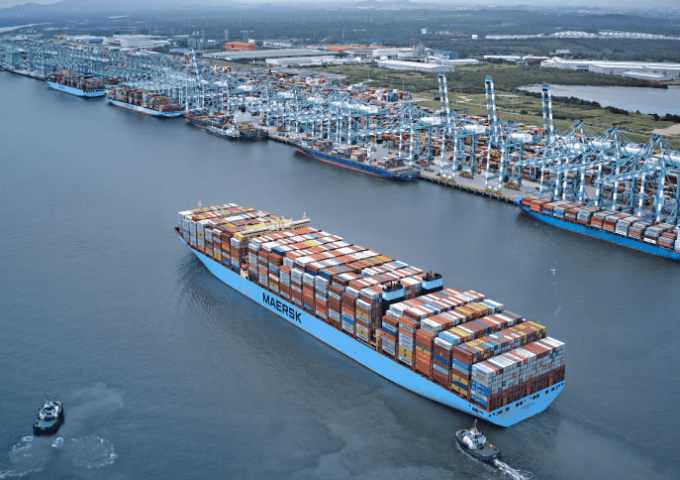Feeder operators targeting perishables are 'cashing in' on Red Sea crisis
Indian reefer cargo stakeholders are “cherry-picking” ocean services going via the Red Sea, instead of ...
FDX: DOWNGRADEZIM: BEST PERFORMER WTC: INVESTOR DAY AAPL: LEGAL RISKTSLA: UPGRADEXOM: DIVESTMENT TALKAMZN: HOT PROPERTYGM: ASSET SALEHLAG: PROTECTING PROFITSVW: STRIKINGPLD: FAIR VALUE RISKSTLA: CEO OUTDHL: BOLT-ON DEALMAERSK: NEW ORDERGXO: POLISH DEAL EXTENSIONDSV: TRIMMING
FDX: DOWNGRADEZIM: BEST PERFORMER WTC: INVESTOR DAY AAPL: LEGAL RISKTSLA: UPGRADEXOM: DIVESTMENT TALKAMZN: HOT PROPERTYGM: ASSET SALEHLAG: PROTECTING PROFITSVW: STRIKINGPLD: FAIR VALUE RISKSTLA: CEO OUTDHL: BOLT-ON DEALMAERSK: NEW ORDERGXO: POLISH DEAL EXTENSIONDSV: TRIMMING

PRESS RELEASE
Oslo, Norway, 12 January 2024
Missile strikes by the US and UK against Houthi militia in Yemen has brought heightened tensions across the region with disruption to ocean freight shipping set to deteriorate further.
At approximately 2.30am (Sanaa/Red Sea time) today, Friday, the US and UK military carried out air strikes on targets in Yemen in response to Houthi militia attacks on merchant ships in the Red Sea, which have totalled 27 since November 19.
Peter Sand, Chief Analyst at Xeneta – the leading ocean freight shipping rate benchmarking and intelligence platform, said: “We want to see safe, risk-free voyages through the area for vessels and the situation must calm down for that to happen.
“There is never a straight line to a resolution and perhaps the missile strikes in Yemen by the US and UK is the beginning of the endgame in this crisis, but, short term, things will get worse before they get better for ocean freight supply chains.”
The attacks by Houthi militia have forced ocean freight container ships on critical trade routes through the Suez Canal from the Far East to the Mediterranean, North Europe and US East Coast to divert around the Cape of Good Hope in Africa and miss port calls in an attempt to make up lost time.
The latest data from Xeneta shows ocean freight shipping rates from the Far East to the Mediterranean and North Europe are set to hit 200% increases since mid-December in the next seven days. Shippers are now using the Xeneta platform to evaluate these risks and take data-led decisions to protect their supply chains.
Sand said: “Vessels are already avoiding the area due to the Houthi attacks and the US and UK missile strikes are unlikely to change that. The longer this crisis goes on, the more disruption it will cause to ocean freight shipping across the globe and costs will continue to rise.
“This means goods being delayed, or not arriving at all, and rising prices for the end consumer.”
Iran, which has supported the Houthi attacks in the Red Sea, has previously stated it would respond to any military intervention in the region by the US or its allies with military action of its own in the Strait of Hormuz.
Sand said: “Tension in the Middle East is nothing new and there has always been a level of risk for ocean freight shipping. You cannot rule anything out, but it is unlikely we will see escalations of this kind in the Strait of Hormuz.
“But we are looking at months rather than weeks or days before this crisis reaches any kind of resolution.”
Comment on this article